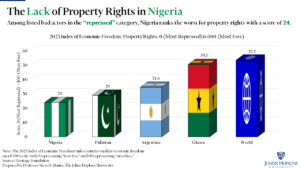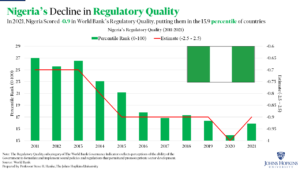John O. Ifediora @ifediora_john.
All political dynasties eventually fail, but their demise come much quicker if the reasons for their being are no longer in consonant with extant social sensibilities of the electorate. The histories of nation-states are replete with the natural death of moribund political institutions too feckless and spent to serve the needs of a progressively sophisticated citizenry. The two major parties in Nigeria, APC and PDP, a political duopoly that interchangeably misruled the affairs of Nigerians beginning in 1999, are now forced to take stock of what they have done to and for the country, but more importantly to give a clear narrative of their administrative agenda in the last twenty-four years. The record is one of abysmal and catastrophic failures that came to a head in the last presidential election held on February 25, 2023; the youths, whose current and future prospects have been mortgaged by the political elites that ruled the country, have risen to demand a course correction, and re-energized the Labour Party that represents their vision for Nigeria…one of clean and efficient government that puts the interests of the nation above the cult of personality and special interests. It is a struggle that favors them because all the relevant socio-economic variables are perfectly aligned against the old guards.
The first shot across the bow was delivered by the flag bearer of the Labour Party, Mr. Obi, on March 2, 2023 in a petition filed against INEC with the Presidential Electoral Petition Court in Abuja to compel production of documents that informed the decision to call the election results in favor of Bola Tinubu, the APC presidential candidate. The legal papers filed read in part: “Motion Ex Parte brought pursuant to Section 36(1) of the Constitution of the Federal Republic of Nigeria,1999, Section 146 of the Electoral Act, 2002 and Paragraphs 47(1) 54 of the First Schedule to the Electoral Act, 2002 and under the inherent power of the honourable tribunal.”
The election has been widely criticized by various international and domestic bodies as below acceptable standards of electoral process and plagued by violence and voter suppression. The final vote tally, not surprisingly, reflected a seriously flawed and compromised norm for a free and fair exercise of participatory democracy; voters in various parts of the country were denied access to polling stations and many were subjected to psychological intimidation and physical violence. The youths who had worked for months to place the country on a new path completely devoid of the status quo that served average Nigerians a steady dose of malfeasance and crippling bureaucratic corruption saw this as further justification to jettison a system that has perennially failed them.
The outcome of the presidential election, while disappointing to many, has provided the youths an important opportunity to strengthen the reach and depth of the Labour Party through grassroots political activism. As the party chieftains pressed their case in the courts, party operatives are busily getting candidates of the Labour Party elected to the federal house of representatives and governors’ mansions, thus creating an electoral architecture that was lacking a few months ago but necessary to create a viable political party. By patiently implementing this two-pronged approach, the youths are effectively adopting a long-run strategy that would keep their party of choice in power as soon as the next presidential election. Through sustained litigations in the courts, the Labour Party effectively keeps the ruling party perpetually on the defensive and minimize opportunities for venality and corrupt practices. This much is the perceived strategy of the Labour Party, and if properly executed it may yield the outcome the youths of Nigeria had hoped for in the first instance. If not, then the country should brace itself for a protracted existential struggle between the old guards of Nigeria’s political elites and its numerically superior and digitally plugged-in youths.
As the struggle unfolds in the courts and in the political arena, it is instructive to keep these statistics in perspective:
- Under the leadership of President Buhari and the governing party of APC, Nigeria now ranks in the lowest percentile for property rights in the world as reported by the Index of Economic Freedom.

2. In the World Bank’s ranking of nations in its Regulatory Quality Index, Nigeria’s score of -0.9 in 2021 represents a decline by 11% from its score in 2011.

Both scores are indicative of a failed state and would make getting international loans for infrastructure development from international institutions much harder and expensive. These vectors are not encouraging.
*photo courtesy: Johns Hopkins University, The World Bank, Getty images.



